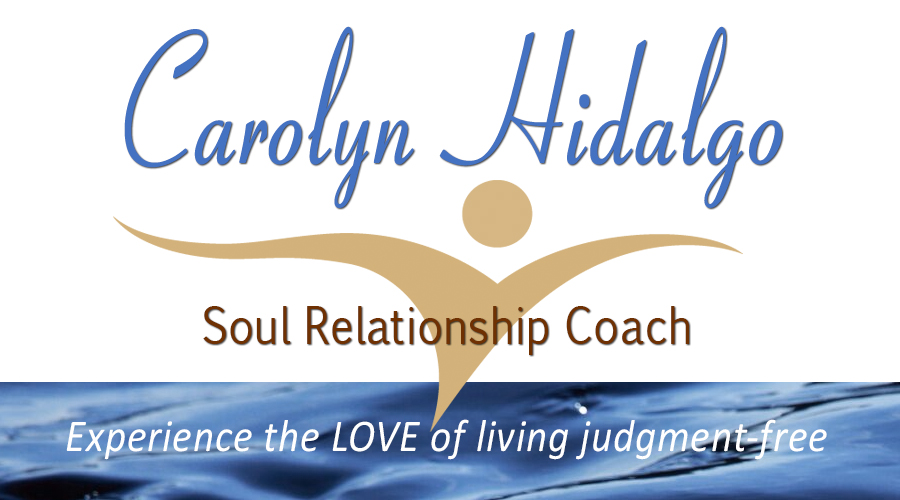In my last blog Finding Forgiveness I talked about judgment and forgiveness. And I also discussed what prevents us from forgiving, and how transcending judgment–looking beyond what is right/wrong or good/evil is a critical first step before you can shift into the energetic space of compassion required for forgiveness. I explained that judgment of someone happens when we stand in a superior place attached to the attitude of ‘being right’, and seeing someone else as inferior, and how this destructive energy ends up coming right back to you.
I’ve successfully coached clients around the topic of judgment and often their experiences are remarkably similar: they are often bewildered and surprised that they suddenly feel less stressed and their connections with others deeper and more fulfilling. I talked to everyone willing to discuss judgment; read countless books and comments on forums paying close attention to how judgment is interpreted. On a personal level, my most enlightening experiences have been the most painful–those of being judged by individuals whose intentions I trusted, and arriving on the other side with a new found inner trust, and heightened sense of consciousness.
What I discovered was FASCINATING: on the whole, we are not conscious of when or how we are judging others. There is mass confusion in the use of the word ‘judgment’. We unknowingly create dysfunctional, stress-induced interactions with those around us, especially the ones we love most. Until I leaned into 100% trusting myself, I was setting myself up for betrayal by trusting those who had an inability to trust others. Are you someone you can trust?
The Way We Think About Judgement
The way we have come to think about judgment is why we hold on to it so tightly, and surrendering it can be such a challenge! This gets complicated, so stay open; my intention is for you to ‘see’ what I am now seeing because it has transformed all my relationships in the most remarkable way.
Judgment has developed over the centuries to have several different uses in our conversations. Some of which are the exact opposite. Consider that we use this term to mean ALL of the following:
1. An opinion or belief formed.
2 A conclusion drawn.
3. An assumption made.
4. The ability or capability to make a decision or assess a situation objectively, authoritatively, wisely to draw sound conclusions.
5. Also includes making the above decisions subjectively.
6. A determination of a court of Law.
7. Consequences sent by God for the punishment of sins.
So, which is it? We use them all interchangeably. This is the problem. Throw in the fact that we are using judgment to uncover our truth, which is limited to our perception. Then throw in that we judge both people and objects. People respond (understandably in defense), objects do not.
If I’m asking you to surrender judgment =to forgive, how can you do that when judgment is also a key ability used to make good decisions? Being ‘judgmental’ is widely understood to mean someone who condemns, and holds contempt, but at the same time can mean a wise person who exercises ‘good judgment’. The Paradox.
Distinguishing The Terms Pertaining to Judgement
We must get VERY CLEAR on what it means to use judgment by distinguishing these terms.
The first 3 uses – having an opinion, making an assumption, drawing a conclusion is not the same as judging someone. Everyone is entitled to think for themselves and will have their own opinions. We also make assumptions to fill in the gaps when we are missing elements of a situation, but must make a decision with what we’ve got to arrive at our own conclusions.
When we judge someone we become attached to our opinions, assumptions, and conclusions “being right” and not open to the possibilities available. We make someone wrong with our judgment looking down upon them, and send condemning energy from being attached to our ‘right’ way.
4. above is known as discernment – it is neutral. This is the use that most people mean while talking about judgement and forgiveness and when they think ‘but you have to judge’ or you have ‘right to judge’! Discernment IS objective in the sense that there is no attachment to being right, unlike judgment, which can be subjective.
Judgment, when used in a court of law, finds a defendant ‘innocent’ or ‘guilty’. This definition of judgment can attach itself to our own ideas about people being ‘good’ or ‘bad’. Religion often magnifies the disparity between judgment and discernment where good and evil make their appearance in spiritual texts, and we becomes ‘sinners’ living in fear of being judged. This thinking can be so extreme among religions that people justify killing in the name of God. The shift to love, and compassion transcends judgment.
Judgment is so pervasive in our society that we condemn our own children labeling them as ‘bad’ and needing to be punished. This is a fear based approach where judgment is the culprit. How can children BE ‘good’ or ‘bad or BE ‘right’ or ‘wrong’? Have you ever wondered why so many children grow up not feeling good enough? Children are dependent on their parents, caregivers, and teachers, for their nurturing and guidance. It is their words and actions that can be constructive or destructive – not the children themselves. That’s they are needed to taught about judgement and forgiveness from an early age.
How Judgement and Forgiveness Affect Our Lives
Using judgment in our own lives is what causes so much of the suffering in our world today including the withholding of love, compassion, and forgiveness. It breeds guilt, causes stress, disconnection, and conflict. However, understanding judgement and forgiveness can reduce a lot of stress.
Understand that by seeing someone as ‘good’ or ‘right’, and ‘bad’ or ‘wrong’ is a false belief. Start using the word discernment instead of judgment i.e. #4. above. Stop using judgment to mean opinions, assumptions, and conclusions. Using this one word to encompass all these different terms justifies our right to judge other people.
Pay attention to how ‘judgment’ shows up in your every day conversations, and choose the more accurate word. Remember that when you use the word ‘should’ related to a person, you are likely judging them to be wrong. You can feel it in your energy. Distinguishing between discernment that serves you to make wise decisions, and releasing the toxic energy of hidden judgment will bring a whole new depth, and authenticity to your relationships. Forgiveness from here becomes not only achievable, but magical.
So, always be mindful of these two facets — judgement and forgiveness.
Next Blog: The secret to discerning what others can hear while living your own truth.




I like this weblog very much, Its a very nice place to read and get info. “Our chief want in life is somebody who shall make us do what we can.” by Ralph Waldo Emerson.
Wow, amazing blog layout! How long have you been blogging for? you made blogging look easy. The overall look of your web site is magnificent, as well as the content!. Thanks For Your article.